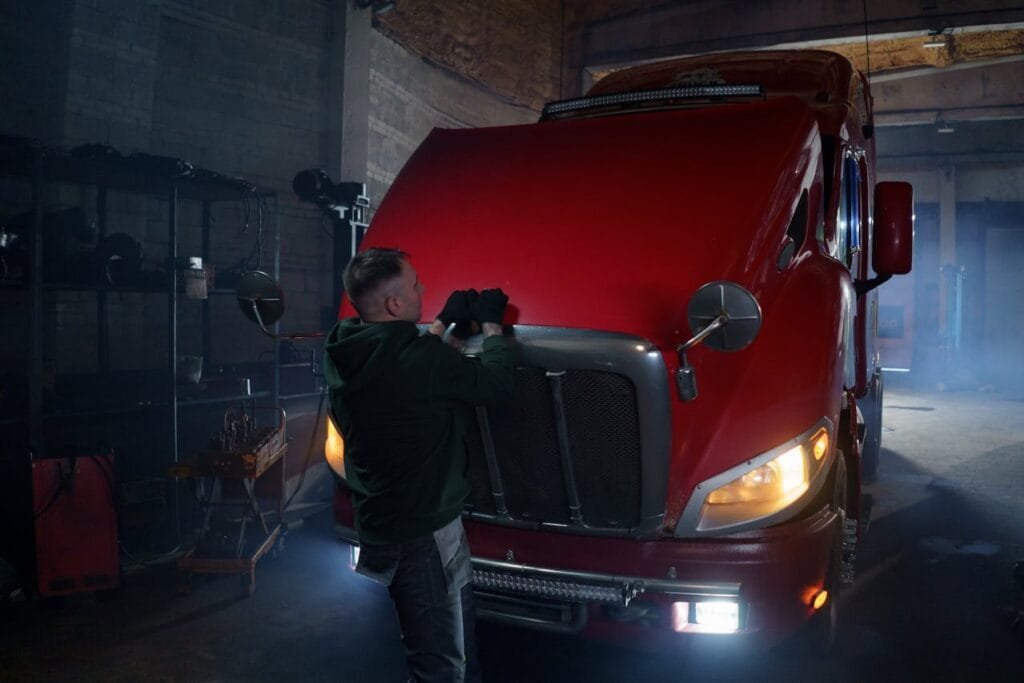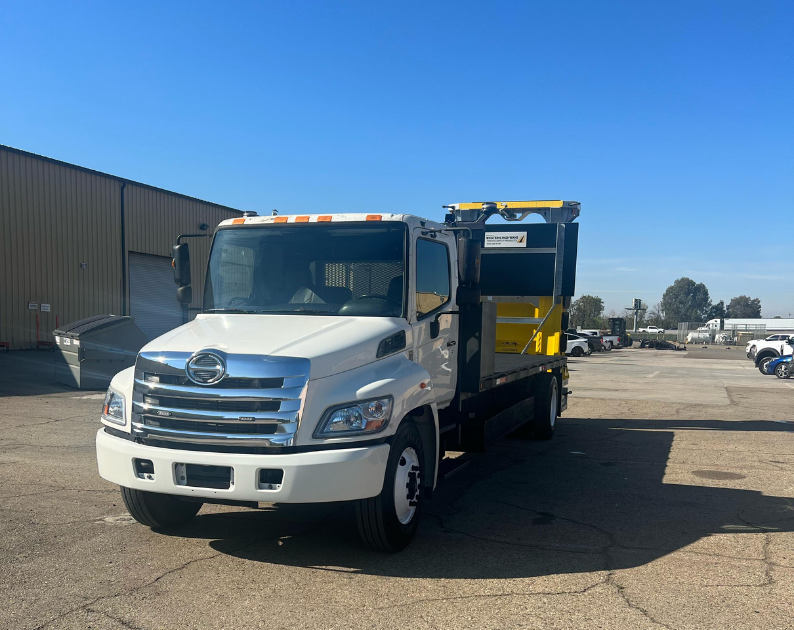At Western Highways Traffic Safety, we understand the critical role Truck-Mounted Attenuators (TMAs) play in protecting workers and motorists on the road. As a vital part of traffic safety, these units require regular maintenance and timely repairs to ensure they perform at their best. Below, we outline the top 10 most common TMA repair requests that we handle regularly and the services we provide to keep your TMAs in optimal condition.

1. Suction Cup Malfunctions
One of the most common TMA repair requests involves issues with the suction cups that secure the unit to the vehicle. These cups can wear out over time due to weather, wear, or improper maintenance.
- Why It Happens: Exposure to heat, cold, and constant use can degrade the suction cups.
- How We Fix It: We inspect and replace worn or damaged suction cups, ensuring a secure attachment to your vehicle and enhanced safety.
2. Hydraulic System Failures
Hydraulic issues are common in TMAs due to the constant pressure and usage. Problems with hoses, pumps, or fluid levels can lead to reduced functionality or complete system failure.
- Why It Happens: Leaks, wear, and air in the system can affect performance.
- How We Fix It: Our technicians diagnose and repair hydraulic system issues, replacing worn parts and ensuring the system operates smoothly with the correct fluid levels.
3. Brake System Malfunctions
The brake system of a TMA is critical for safe operation. Faulty brakes can prevent the unit from engaging or disengaging properly, leading to safety concerns.
- Why It Happens: Over time, brake pads, rotors, or hydraulic components may wear down.
- How We Fix It: We inspect, repair, and replace brake components to ensure your TMA responds quickly and effectively when needed.
4. Lighting and Electrical Issues
TMAs are equipped with a range of lights and electrical systems for visibility and warning. When these systems malfunction, it can reduce visibility, increasing risk on the road.
- Why It Happens: Electrical connections can corrode or wires can become damaged.
- How We Fix It: We conduct thorough electrical inspections, replacing faulty wiring, bulbs, or connections to restore full lighting functionality.
5. Damage to Arrow Boards
The arrow boards on TMAs are essential for directing traffic, and they’re vulnerable to damage, especially in high-traffic or harsh environments.
- Why It Happens: Impact, weather, or extended use can cause arrow board panels to malfunction or break.
- How We Fix It: We replace damaged boards and ensure the arrows are properly aligned, giving clear direction to drivers and maintaining safety on the job site.
6. Structural Frame Damage
The structural frame of a TMA may suffer from wear and tear, especially after frequent deployment in high-impact conditions. This can affect the unit’s stability and performance.
- Why It Happens: Repeated use in tough environments can weaken the frame over time.
- How We Fix It: We inspect the frame for cracks or damage and perform repairs or replacements as necessary to maintain the integrity of the unit.
7. Pneumatic System Repairs
Many TMAs feature pneumatic systems for raising and lowering the attenuator. Issues with these systems can cause slow or malfunctioning movements, hindering the TMA’s effectiveness.
- Why It Happens: Air leaks, worn components, or clogged filters can affect pneumatic performance.
- How We Fix It: We inspect and repair pneumatic systems, replacing seals, filters, or valves to restore smooth operation.
8. Hydraulic Cylinder Leaks
The hydraulic cylinders that control the deployment and retraction of the TMA can develop leaks, reducing the efficiency of the unit.
- Why It Happens: Over time, seals can wear out, or debris may enter the system.
- How We Fix It: Our team replaces worn seals, repairs any leaks, and performs a full system flush to ensure the cylinders are functioning at their best.
9. TMA Head Damage
The TMA head, often the most exposed part of the unit, can be damaged in collisions or by road debris. This can significantly impact the TMA’s ability to absorb impact.
- Why It Happens: Impact from vehicles or road debris can cause dents, cracks, or complete structural failure.
- How We Fix It: We inspect the TMA head for damage and replace it with a durable, high-quality component designed to withstand harsh impacts.
10. Excessive Wear on Tires and Tracks
The tires and tracks of a TMA can become worn over time, especially in areas with high usage or difficult road conditions. Worn-out tires can compromise safety by reducing the unit’s mobility.
- Why It Happens: Prolonged use in tough conditions, such as heavy traffic or extreme weather, can accelerate wear.
- How We Fix It: We replace worn-out tires and tracks, ensuring that your TMA remains mobile and ready for deployment when needed.
How We Ensure High-Quality Repairs
At Western Highways Traffic Safety, we pride ourselves on providing fast, reliable repairs that keep your TMAs in top working condition. Our team of certified professionals is equipped with the latest tools and knowledge to diagnose and fix any issue quickly and efficiently.
Preventive Maintenance Tips
To avoid costly repairs and downtime, consider implementing regular maintenance for your TMAs:
- Regular Inspections: Schedule routine checks to catch problems before they become serious.
- Lubrication and Cleaning: Keep hydraulic systems and moving parts clean and lubricated to prevent premature wear.
- Component Testing: Regularly test the functionality of brakes, lights, and arrow boards to ensure they’re working properly.
Frequently Asked Questions (FAQs)
Q: How often should I schedule TMA maintenance?
A: Regular maintenance is recommended every 6 to 12 months, depending on usage. However, if you notice any issues or irregularities, it’s best to get it checked immediately.
Q: Can I repair my TMA myself?
A: While some minor repairs can be done, we recommend professional servicing for complex systems like hydraulics, brakes, and electrical components to ensure safety and reliability.
Q: How do I know if my TMA needs a repair?
A: If your TMA is showing signs of malfunction, such as slow movement, strange noises, or failure to deploy, it’s time for an inspection.
Conclusion
TMAs are a critical part of road safety and maintaining them is essential for keeping roadwork crews and drivers safe. At Western Highways Traffic Safety, we specialize in repairing and maintaining TMAs, handling everything from minor issues to major repairs. With our expertise and commitment to quality, you can trust that your TMA will always be ready for deployment when you need it most.
Contact Us
Need a TMA repair or inspection? Contact us today:
- Phone: +1 (559) 785-1400
- Email: info@westernhighwaystrafficsafety.com
- Website: westernhighwaystrafficsafety.com




